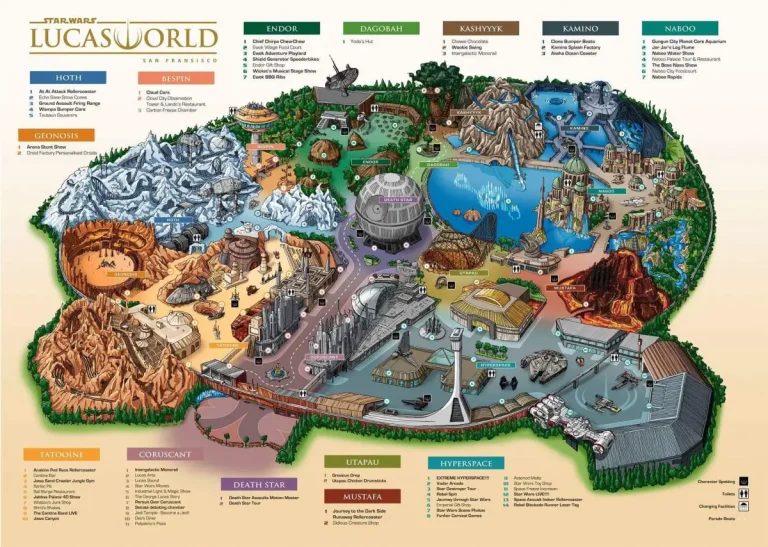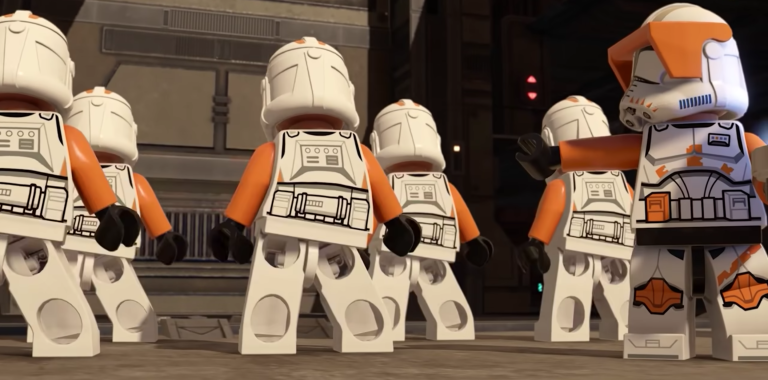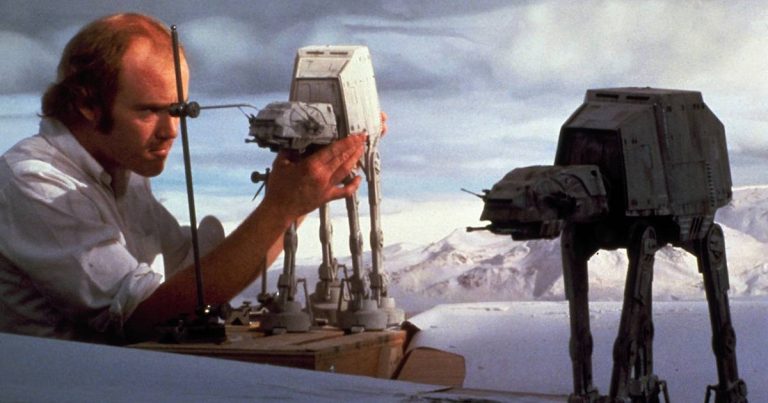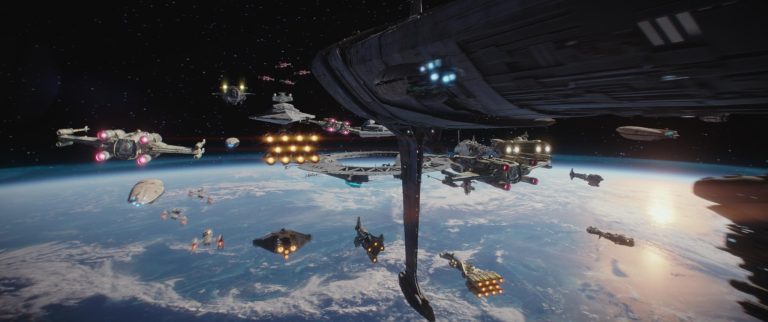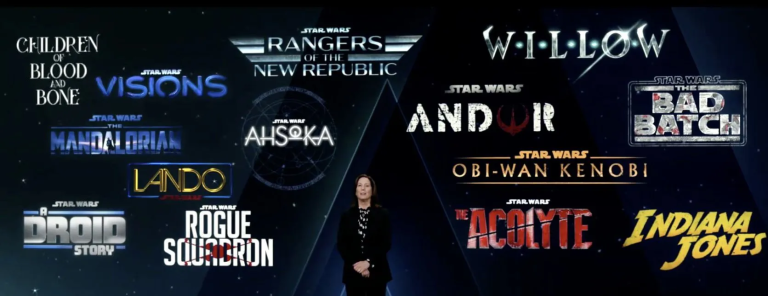Is Star Wars Influenced By Any Real-world Mythology Or History?
If you’re a fan of the iconic Star Wars franchise, you may have wondered if it draws inspiration from real-world mythology or history. Well, you’re in for a treat because we’re about to dive into the fascinating connections between Star Wars and the world we live in. From ancient myths to historical events, the creators of Star Wars have skillfully woven elements of our own reality into this beloved space opera.
When George Lucas first conceived Star Wars, he wanted to create a modern mythology that resonated with audiences on a deep level. To accomplish this, he drew upon various sources of inspiration, including Joseph Campbell’s “Hero’s Journey” and the works of mythologist Carl Jung. By tapping into the universal themes and archetypes found in mythology, Lucas crafted a story that would captivate audiences for generations to come.
But it’s not just mythology that influenced Star Wars. Historical events and cultures also played a significant role in shaping the galaxy far, far away. For example, the Jedi order bears resemblance to the samurai warriors of feudal Japan, with their strict code of honor and mastery of the sword. Additionally, the Galactic Empire’s rise to power and subsequent downfall mirrors the rise and fall of empires throughout history, such as the Roman Empire and the Third Reich.
So, buckle up and get ready to explore the fascinating connections between Star Wars and real-world mythology and history. From ancient legends to pivotal moments in human civilization, you’ll discover how this epic saga draws upon the rich tapestry of our collective human experience. May the Force be with you as we embark on this thrilling journey!
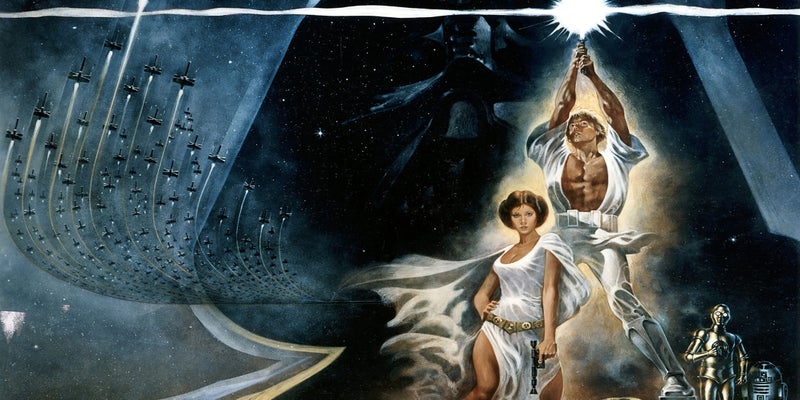
Is Star Wars Influenced by Any Real-World Mythology or History?
Star Wars, the iconic space opera franchise, has captured the hearts and imaginations of millions of fans around the world. With its epic battles, memorable characters, and intricate universe, it has become a cultural phenomenon. But is Star Wars purely a work of fiction, or is it influenced by real-world mythology and history? Let’s delve into the rich tapestry of Star Wars and explore the connections it has to our own world.
The Hero’s Journey: A Mythological Foundation
One of the most significant influences on Star Wars is the concept of the hero’s journey, a narrative framework found in many mythologies and ancient stories. This archetype, popularized by scholar Joseph Campbell, follows a hero’s transformative journey from ordinary life to extraordinary adventures and eventual victory. George Lucas, the creator of Star Wars, drew heavily from this structure, infusing the saga with mythical elements.
In Star Wars, we witness Luke Skywalker’s journey from a humble farm boy to a Jedi Knight. He faces challenges, encounters mentors, and ultimately confronts the embodiment of evil in Darth Vader. This narrative mirrors the hero’s journey found in ancient myths, such as the Greek hero Odysseus and his trials on his way back home. By incorporating this timeless storytelling pattern, Lucas tapped into a universal human experience that resonates with audiences.
The influence of mythology goes beyond the hero’s journey. The Force, the mystical energy that binds the Star Wars universe, has parallels with various spiritual and philosophical beliefs throughout history. From the concept of chi in Chinese philosophy to the Hindu concept of prana, the idea of a life force connecting all living beings is a recurring theme in different mythologies. By incorporating this universal concept into Star Wars, Lucas created a sense of depth and resonance that adds to the series’ enduring appeal.
Historical Parallels: Echoes of the Past
While Star Wars is primarily a work of fiction, it also draws inspiration from historical events and figures. The Galactic Empire, for example, bears striking similarities to authoritarian regimes throughout history. The rise of Emperor Palpatine and his oppressive rule echo the rise of dictators in our own world, reminding us of the dangers of unchecked power.
Additionally, the conflict between the Rebel Alliance and the Empire mirrors the struggle between the forces of good and evil in various historical contexts. The Rebel Alliance’s fight for freedom and justice against an oppressive regime reflects real-world struggles for independence and liberation. By grounding the narrative in familiar historical themes, Star Wars taps into our collective consciousness, making it relatable and relevant.
Another historical influence on Star Wars can be seen in its representation of different cultures and civilizations. The Jedi Order, with its code of conduct and spiritual teachings, draws inspiration from various martial arts traditions, such as the samurai of feudal Japan. The design of the Sith, on the other hand, incorporates elements from ancient Egyptian culture, with their dark, mysterious aesthetic reminiscent of pharaohs and their symbols of power.
In conclusion, Star Wars is not just a work of imaginative fiction; it is a tapestry woven with threads of real-world mythology and history. By incorporating elements of the hero’s journey, drawing inspiration from mythological concepts, and reflecting historical events and cultures, Star Wars becomes a rich and layered saga that resonates with audiences on a profound level. Whether you’re a die-hard fan or a casual viewer, exploring these connections adds a new dimension to the Star Wars experience. May the Force be with you as you embark on your own journey through the galaxy far, far away.
Key Takeaways: Is Star Wars influenced by any real-world mythology or history?
- Star Wars draws inspiration from various real-world mythologies and histories.
- George Lucas, the creator of Star Wars, was influenced by Joseph Campbell’s book, “The Hero with a Thousand Faces.”
- The Jedi and Sith in Star Wars have parallels to the concepts of light and dark, good and evil found in many mythologies.
- The Galactic Empire in Star Wars is reminiscent of historical empires, such as the Roman Empire.
- Star Wars borrows elements from Japanese samurai culture, with the Jedi resembling honorable warriors.
Frequently Asked Questions
Star Wars has captivated audiences for decades with its epic storytelling and iconic characters. Many fans wonder if the franchise is influenced by real-world mythology or history. In this article, we explore the connections between Star Wars and various mythological and historical elements.
1. How is Star Wars influenced by mythology?
Star Wars draws inspiration from various mythological traditions, adding depth and meaning to its narrative. One of the most prominent influences is Joseph Campbell’s concept of the hero’s journey. George Lucas, the creator of Star Wars, was heavily influenced by Campbell’s work, which explores the common elements found in myths and legends from different cultures.
In Star Wars, we see the classic hero’s journey archetype embodied by characters like Luke Skywalker. He starts as an ordinary farm boy, receives a call to adventure, faces numerous challenges and trials, and ultimately becomes a hero. This mythological framework adds a timeless quality to the Star Wars saga, resonating with audiences across generations.
2. Are there any specific mythological references in Star Wars?
Yes, Star Wars contains several specific mythological references. For example, the concept of the Force, the mystical energy that connects all living beings, draws inspiration from Eastern philosophies such as Taoism and Buddhism. The Jedi and Sith orders also echo the dichotomy between light and dark found in many mythological traditions.
Additionally, characters like Darth Vader and Anakin Skywalker have been compared to tragic figures from Greek mythology, such as Oedipus or Achilles. These parallels highlight the universal themes of redemption and the struggle between good and evil that are central to both Star Wars and ancient myths.
3. How does Star Wars incorporate historical elements?
While Star Wars is primarily a work of science fiction, it incorporates historical elements to create a rich and immersive universe. The Galactic Empire, for example, draws parallels to historical empires like the Roman Empire, with its authoritarian rule and vast military machine.
The Rebel Alliance, on the other hand, reflects the spirit of resistance movements throughout history, fighting against oppressive regimes. Additionally, the political dynamics and power struggles depicted in Star Wars can be seen as reflections of real-world historical events, such as the rise and fall of dictators and the fight for freedom and democracy.
4. Are there any cultural influences in Star Wars?
Yes, Star Wars is heavily influenced by various cultural traditions from around the world. The aesthetic of the Jedi and Sith robes, for example, draws inspiration from the attire of Buddhist monks. The architecture and design of locations like Tatooine and Naboo also incorporate elements from real-world cultures, such as Moroccan and Italian influences, respectively.
Furthermore, the diverse range of alien species in Star Wars reflects the multicultural nature of our own world. By showcasing different cultures and species, Star Wars promotes inclusivity and celebrates the richness of human diversity.
5. How does Star Wars connect with our own mythology and history?
Star Wars resonates with audiences because it taps into universal themes and archetypes that are deeply ingrained in our own mythology and history. The struggles between good and evil, the hero’s journey, and the search for meaning and purpose are all concepts that transcend time and culture.
By drawing on mythological and historical influences, Star Wars creates a sense of familiarity and relevance, allowing audiences to connect with its characters and story on a deeper level. In this way, Star Wars becomes a modern mythology that continues to inspire and captivate audiences around the world.
The Mythology of Star Wars with George Lucas and Bill Moyers
Final Summary: The Real-World Influences on Star Wars
As we delve into the captivating world of Star Wars, it becomes evident that George Lucas drew inspiration from various real-world mythologies and histories. From ancient legends to classic tales, Star Wars weaves together a tapestry of influences that resonate with audiences on a deeper level. By incorporating elements from different cultures and epochs, Lucas created a universe that feels both familiar and extraordinary.
One of the most prominent influences on Star Wars is Joseph Campbell’s concept of the hero’s journey, which is rooted in mythology. Luke Skywalker’s transformation from a farm boy to a Jedi Knight mirrors the archetypal hero’s journey found in mythological narratives across cultures. This connection to ancient mythologies adds a timeless quality to the Star Wars saga, allowing audiences to connect with the characters and their struggles on a primal level.
Furthermore, Star Wars draws upon historical events and ideologies. The conflict between the Jedi and the Sith mirrors the age-old struggle between good and evil in our own history. The Jedi represent the forces of light, while the Sith symbolize the temptations of the dark side. This dichotomy reflects the ongoing battle between righteousness and corruption that has shaped civilizations throughout time.
In conclusion, Star Wars stands as a testament to the power of storytelling and the enduring influence of mythology and history. By intertwining elements from different cultures and time periods, George Lucas created a universe that resonates with audiences across generations. The hero’s journey and the battle between good and evil are timeless themes that continue to captivate us. As we embark on new adventures in the Star Wars galaxy, we are reminded of the rich tapestry of human experiences that have shaped our own world. May the Force be with you, always.

